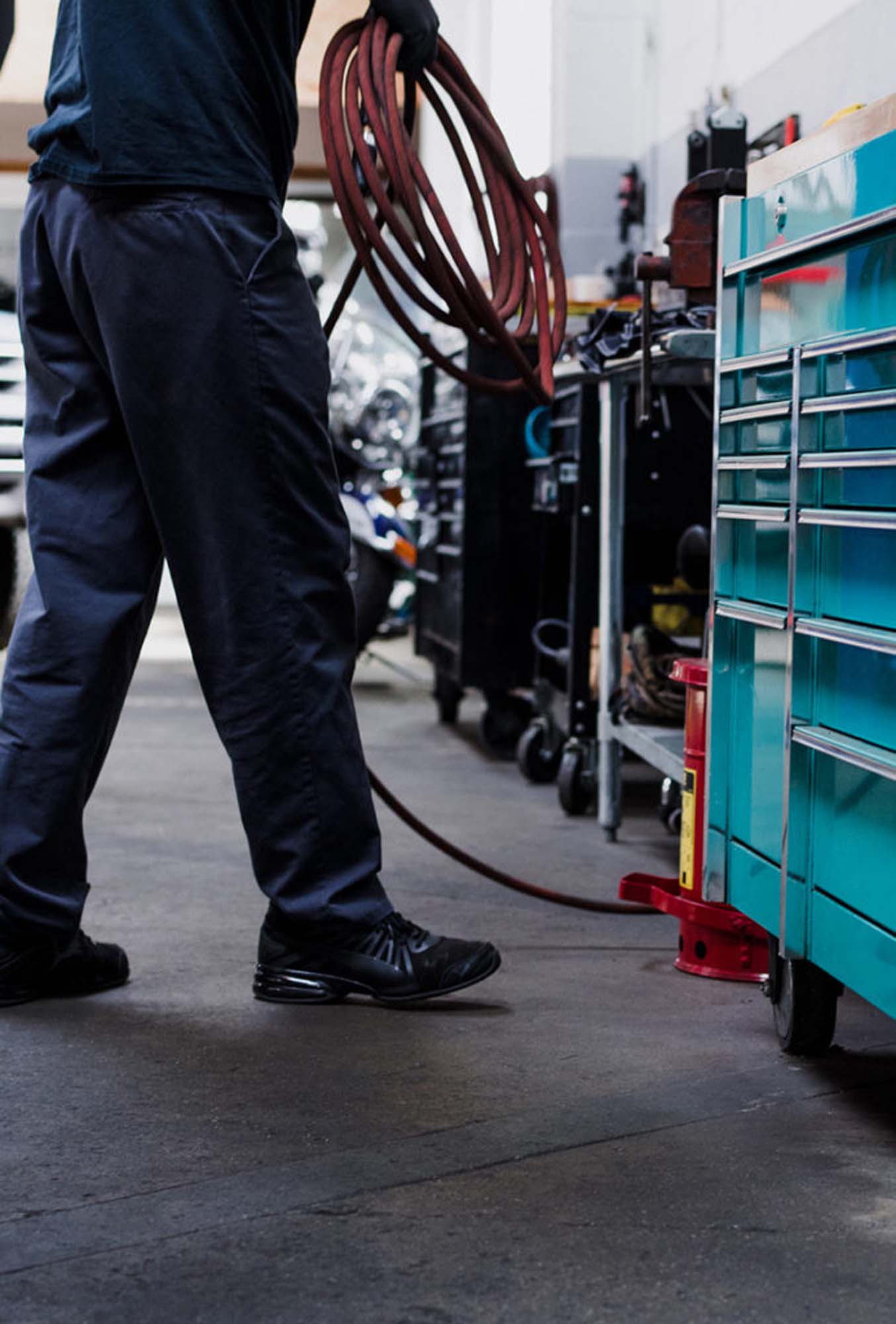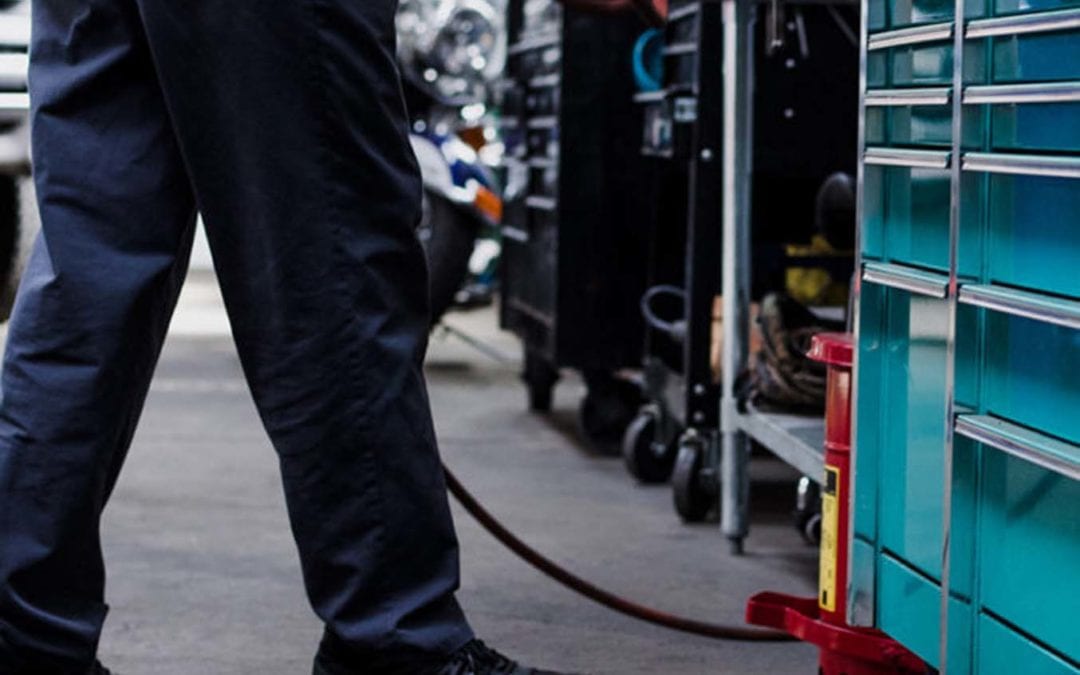How often should brakes be replaced?
Brakes perform a critical function for the driver and require maintenance to give you the best performance. The brake pads, brake caliper, and brake rotor are the three primary components of a vehicle’s braking system. The rotors and brake pads on all modern cars are eventually going to wear out, but the brake wear depends on several different factors such as:
Environment

How Often Should Brakes Be Replaced?
Due to traffic lights and the stop-and-go on-road driving, it puts a lot of pressure on your brakes. This pressure is often higher when driving in a city than when driving on a long straight road or out in the country since braking is not required.
Driving on slopes with a steep elevation can also result in your brakes wearing out faster since it is often necessary for you to ride the brakes to control your vehicle’s downhill speed better.
Driving habits
How hard you, as a driver, push your brakes is significantly going to affect the entire life of your vehicle’s braking system. Some drivers tend to hit hard on the brakes to stop abruptly, while others gently coast to a stop.
Gradual, smooth braking can help you increase the brake pad’s lifespan as well; nevertheless, you must brake abruptly when the situation calls for it.
The hardness of the brake pad
Brake pads come in various compounds to fit different types of driving needs. As the name suggests, hard compound brake pads tend to last longer. You may find these brakes more commonly on performance vehicles. On the other hand, soft compound braking pads perform better at slower speeds, like in an urban area.
Excessive heat can end up melting the pad compound into the rotor and reduce the overall performance of your braking system if driving gets extreme.
Materials
The materials used to make up the brake pad and the brake rotor also play a critical role in the overall durability of your vehicle’s braking system. A carbon-ceramic braking system tends to last longer than regular metal brakes, for instance, but they require it to be warmer than the alternative to give you better performance.
Nevertheless, it would be best if you kept in mind that carbon ceramic brakes come with a hefty price tag and are recommended for high-performance sports cars. Metal or other steel brakes are more common and can adjust adequately to a variety of driving conditions.
How to tell how often should brakes be replaced?
How often should brakes be replaced? Ideally, braking pads need to be replaced every 50,000 miles. Some might even require you to get them replaced after completing 25,000 miles, while others may even last for 70,000 miles – all of this will depend on the factors that we have listed above. If you wish to find a more accurate time frame for your vehicle’s specific needs, you can always consult the owner’s manual for detailed information.
Have you been hearing a high-pitched screeching sound coming from your vehicle when you apply your brakes? That is a small metal Shim, known as the indicator, which will give you an audible warning that you need to get your brake pads replaced at the earliest. You need to be aware of this sound (it is loud enough to be heard easily even if the windows are up, but not loud enough to be heard over loud music).
If you notice this sound regularly, you quickly need to make an appointment with a mechanic from Express Auto & Tires at once! However, there is one exception to the situation.
After being exposed to rain or water from washing, the moisture may cause a thin layer of rust to develop on your brake rotors. This is nothing out of the ordinary. When you first apply the brakes, the pads pressing against the rust-covered rotors may cause a squeal for a few stops until the rust is completely worn off, which is when the sound will disappear.
Below you will find some other common signs that may suggest your vehicle has a brake problem. If you live in Irving, TX, and have been experiencing any of these issues, you need to get in touch with Express Auto & Tires today!
Fading or reduced responsiveness
If you feel like your braking system is not as responsive as it needs to be or if your brake pedal “sinks” towards the floor, it could indicate a leak in the system. How often should brakes be replaced? This could either be a brake fluid leak or an air leak (in the vehicle’s brake hose). A telltale sign of a fluid leak is finding a small puddle of fluid underneath your car when the vehicle is parked. This fluid looks similar to fresh motor oil but has a little less “slimy” texture.
Pulling
If you feel like your vehicle has been pulling towards a particular side when you apply the brakes, it may suggest that the brake linings have been wearing down unevenly, or there might be a foreign matter in your vehicle’s brake fluid. If this is the case, then we suggest you slowly bring your car in for a checkup. Your vehicle may require a brake adjustment or have its fuel drained and replaced.
Vibrations
A pulsating or vibrating brake pedal tends to be a symptom of warped rotors (but may also indicate that your car is out of alignment). This vibration may feel similar to the feedback on your breaking pedal during an emergency stop in a vehicle equipped with antilock brakes.
How often should brakes be replaced? Suppose the vibration occurs when you apply the brakes, and even when the antilock brakes have not been engaged, it means that you have a problem with your rotors. Our professionals from Express Auto & Tires can help you fix any issue with your vehicle, be it something minor or major.
Are you looking for professional assistance?
How often should brakes be replaced? Are you looking for a professional auto repair shop in Irving, TX, or the surrounding areas? If yes, then Express Auto & Tires is here to help. Our auto shop has a staff of professionally trained experts who can perform regular service replacements and different types of auto inspections without any problem! No matter what your issue is, we can surely get it fixed without causing you any inconvenience. Give us a call at 972-636-4903 or contact us online, and we will take care of the rest.

